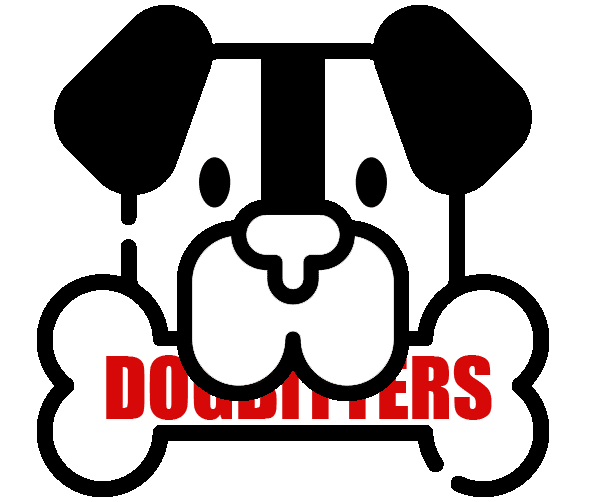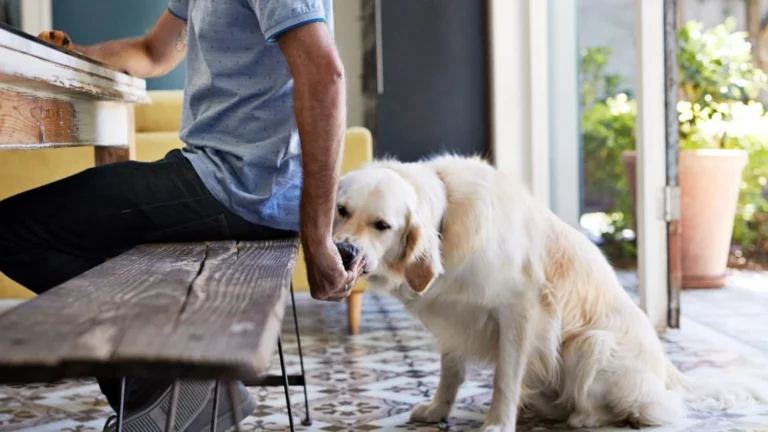There are foods that we can share with puppies, but there are also foods that are not recommended at all. Because their metabolism is different from ours, their bodies do not receive all the food as well as we receive them. Some of them are even toxic.
There are many times when we sit at the table to serve tasty dishes, and our puppy is present. With the eyes of “I want it too”, it is often difficult for you to refuse it. Often you are giving the greedy one what you have on your plate. But is it good for his health to eat our food?
CONTENT:
Foods we can share with our puppies
Eggs – boiled eggs can be shared with family dogs and are extremely nutritious for them. By eating eggs, the dog receives a significant amount of protein, but also almost every vitamin, and mineral it needs.
Peanut butter – consumed in moderation, peanut butter brings a lot of benefits to the dog’s body. However, if consumed in larger quantities, it can lead to weight gain due to its high fat and calorie content.
Carrots – both raw and cooked, carrots are a source of vitamins, fiber, and minerals. They are very healthy for little puppies.
Pineapple – eaten in small quantities, this fruit is safe to eat by dogs. Being full of nutrients, they can reap all the benefits that pineapple offers. However, if consumed in large quantities, it can cause reactions such as nausea or diarrhea.
Blueberries – these fruits are safe and nutritious for dogs. Being a rich source of antioxidants but also of vitamins, fiber and minerals. Your dog can benefit from all these nutrients through their consumption.
Cooked and boned salmon – salmon is a safe but healthy food for dogs. Being an excellent source of Omega-3, it can keep the skin and fur of puppies healthy.
Blackberries – whether fresh or frozen, are a great source of fiber, vitamins, and minerals for the little puppy. If it likes blackberries, even daily consumption is recommended.
Bread – whether it is white bread or wholemeal bread, they can be eaten by dogs, but only occasionally. Consuming regularly, due to a high number of calories, can cause weight gain in the pet.
Watermelon – certainly our puppy loves watermelon, especially in summer. The good news is that this fruit can be eaten by dogs as long as they do not contain seeds.
Peas – studies have shown that many four-legged lovers consider green peas extremely tasty. Fortunately, it is suitable for them, due to its rich nutrient content and low-calorie content. However, it is recommended that you give your dog only fresh or frozen peas. Canned peas contain preservatives and generally a lot of salt, which can harm the dog.
Corn – As we enjoy boiled corn and wait for its season, dogs are probably looking forward to tasting something so healthy and delicious. Corn is recommended for dogs in moderate amounts, being even a common ingredient in various types of dog food.
Different foods we can’t share with our puppies
Sweets – just as they are not extremely healthy for us, nor are they for dogs. Consumption of sugary products by small dogs can cause problems with teeth, extra weight, or even diabetes.
Salt – just as it is recommended for us to consume products with as little salt as possible, so it is for dogs. It is not recommended to share very salty foods with them, such as chips or pretzels, as salt can lead to sodium ion poisoning. As symptoms of this intoxication, you will notice tremors, vomiting, diarrhea, depression, and seizures.
Raw meat – is not at all recommended to be eaten by dogs, as it may contain various bacteria that can cause food poisoning. Instead, cooked optimally, meat is a delicacy but also an important source of nutrients.
Milk – this food is not completely banned for all dogs, but great care must be taken because lactose intolerance is common in dogs. Consumption of milk by puppies with this intolerance can lead to vomiting, diarrhea, or stomach pain.
Fat from the meat – even if it seems natural to give these leftovers to puppies, because we know how much they would enjoy them, it is not indicated at all because this fat can cause pancreatitis.
Ice cream – even though it is our favorite product during the summer, and we would like to give your pet a moment of pampering to cool off, ice cream is not recommended for them at all. Being a milk product, it can cause diarrhea or various digestive problems.
Grapes and raisins – these fruits contain certain compounds that are extremely harmful to dogs, which if consumed, can cause kidney failure.
Chocolate – even if we can say that we love chocolate, it is absolutely forbidden for dogs to consume it, regardless of whether it is chocolate with a higher or lower cocoa content. Due to the fact that caffeine and theobromine are found in chocolate, these substances cannot be metabolized effectively by dogs. If dogs consume chocolate, they may experience symptoms such as diarrhea, vomiting or dehydration, which may later lead to more serious complications.
Raw salmon – although cooked, is an excellent food for dogs. Raw salmon is dangerous for them because the meat can have a parasite that causes intoxication.
Onions – found in many of our dishes, onions are not at all suitable for dogs. It contains a compound that is toxic to dogs and can damage their red blood cells. As symptoms, you will notice a decrease in appetite, weakness, or even fainting.
Tea and coffee – even though for most of us coffee or tea is the quietest time of the day, it is not at all appropriate for our dogs. They contain caffeine, which stimulates the dog’s nervous system and can cause convulsions, hyperactivity, vomiting, and diarrhea.
Avocado – This fruit is not recommended to be eaten by dogs because it contains a substance that can harm the pet. As an action of this substance, it is recognized that it can cause shortness of breath, vomiting, and diarrhea.
Garlic – this vegetable with various healing properties for humans, is forbidden to be eaten by dogs. It contains thiosulphates, which are toxic to our animals because they can damage red blood cells, leading to anemia.
Even though these foods are indicated or forbidden for dogs, we all know that every dog is different, and for some of them, some foods are beneficial, while for others, the same foods have side effects. Thus, when you try to reward your pet with a new food product that is not on the list of prohibited products, we recommend that these rewards be done gradually, to see the reactions it has.
At the same time, we know that no matter how much we try to pay attention to the feeding of the little puppies, there are situations in which they “put their nose where they should not” without us noticing. Thus, in a very short time, they can grab any of the foods that are not indicated at all. If you notice this only after eating, or if you notice any strange symptoms, we recommend that you call your veterinarian as soon as possible to avoid aggravating the symptoms.

